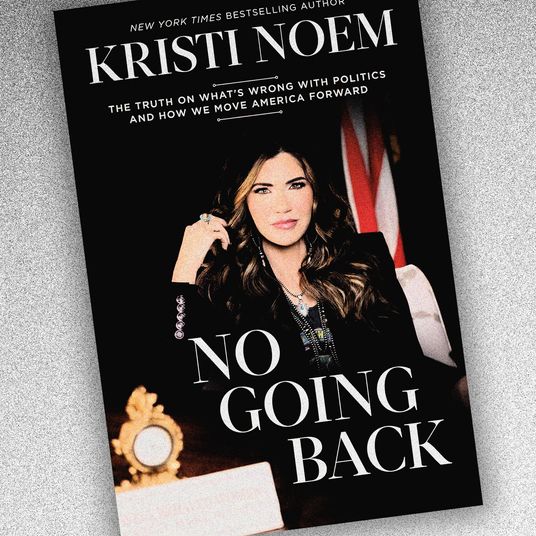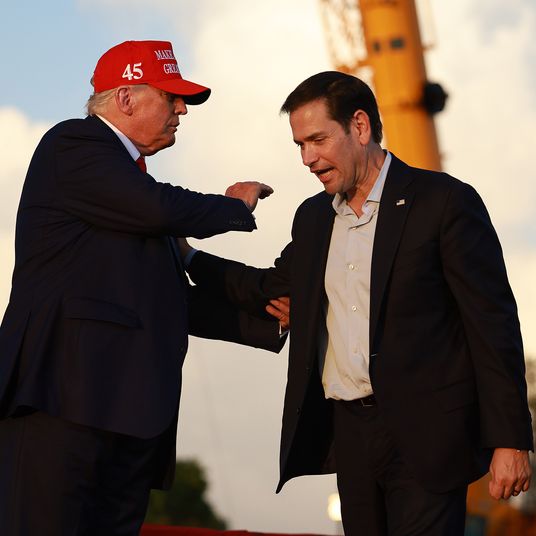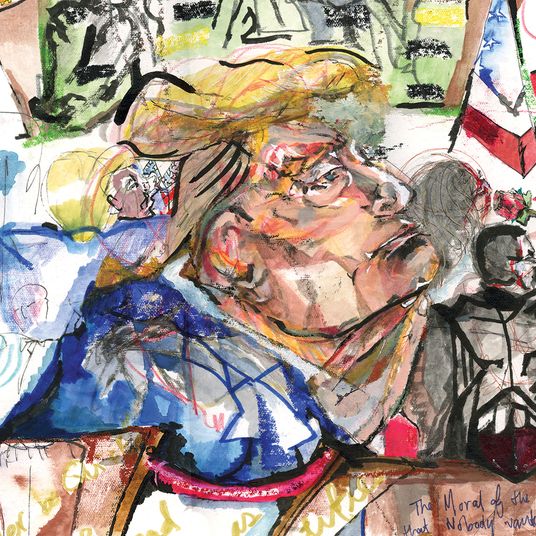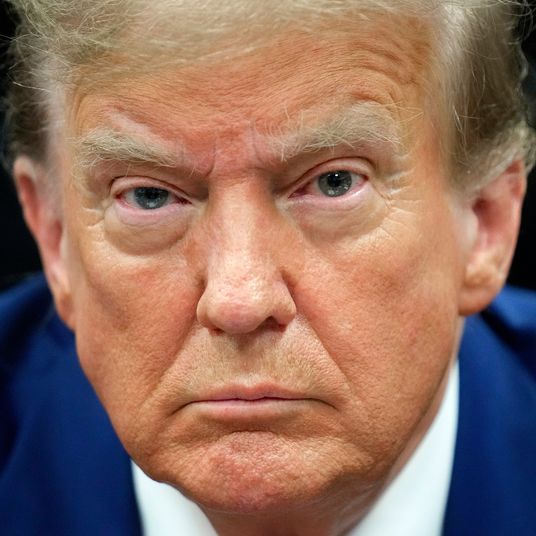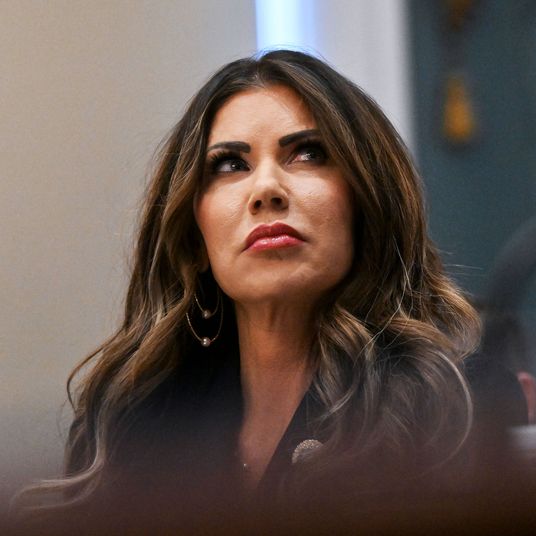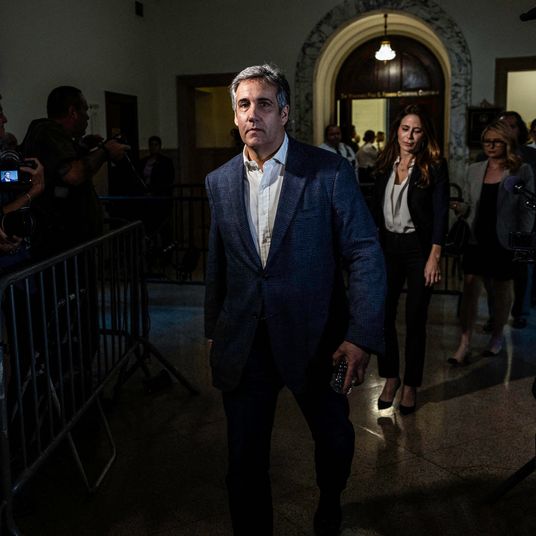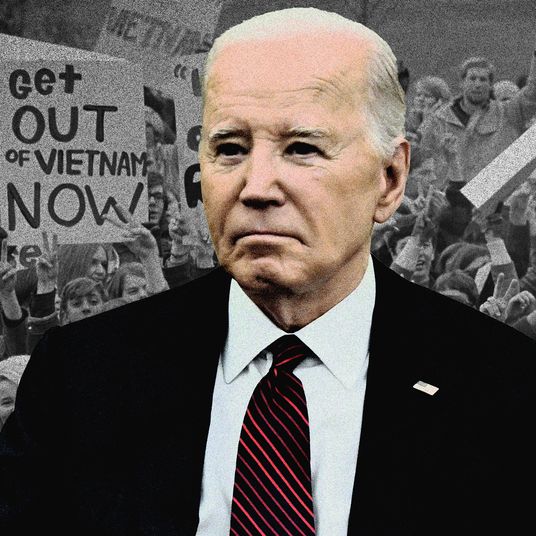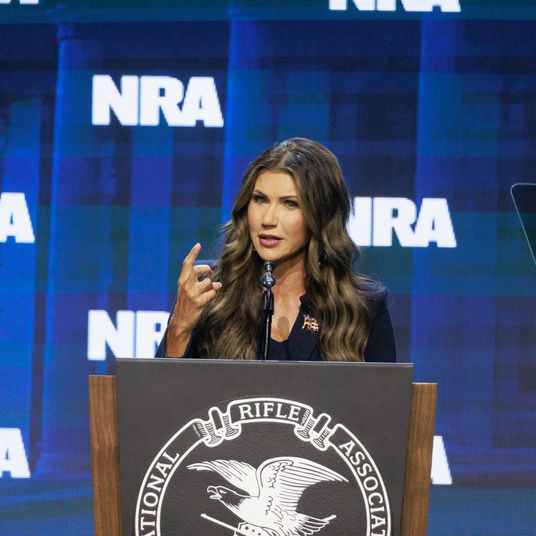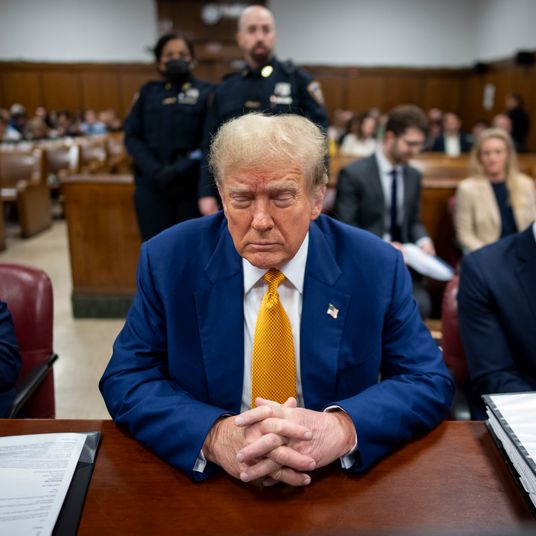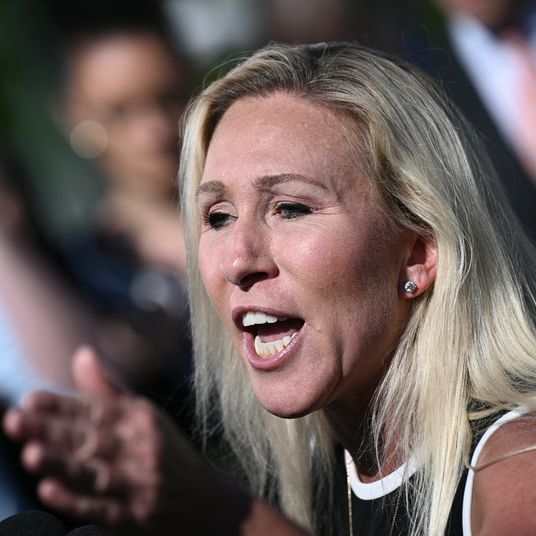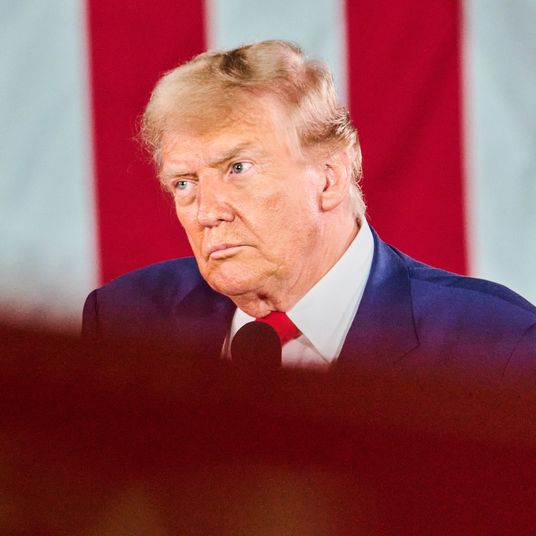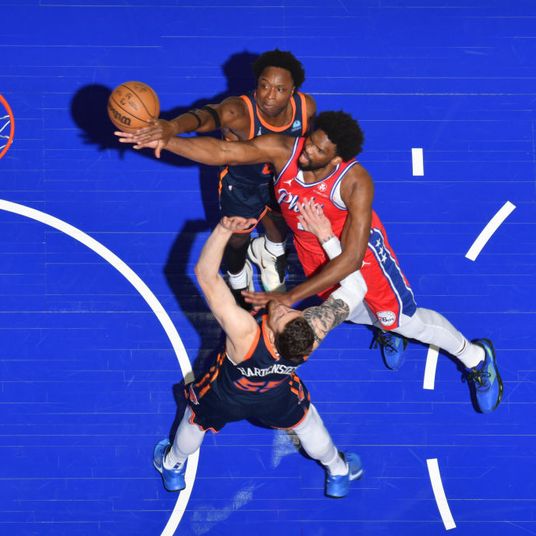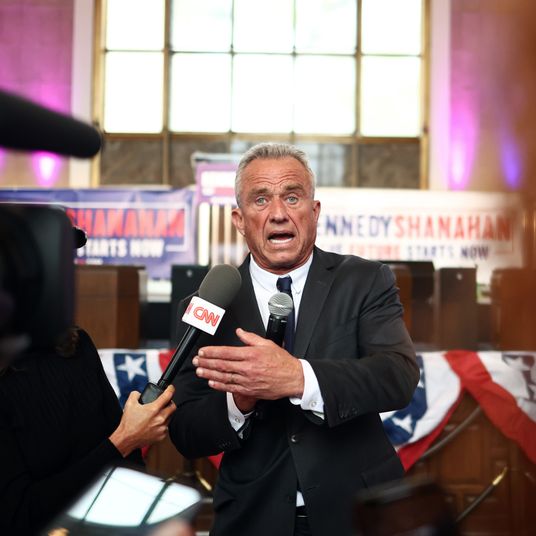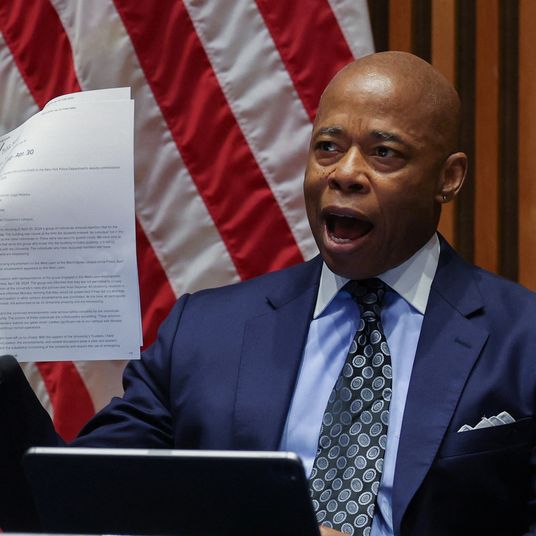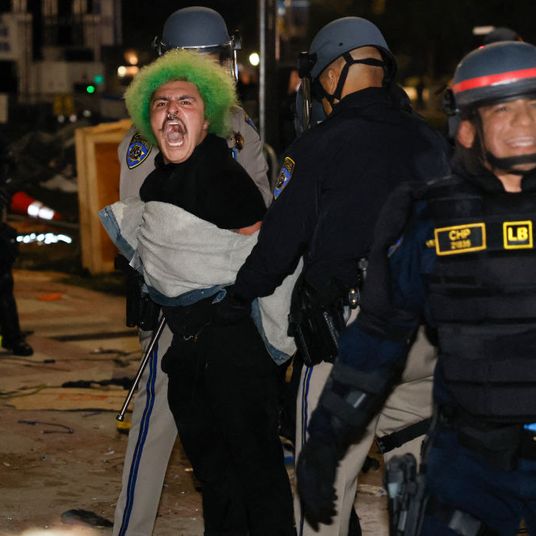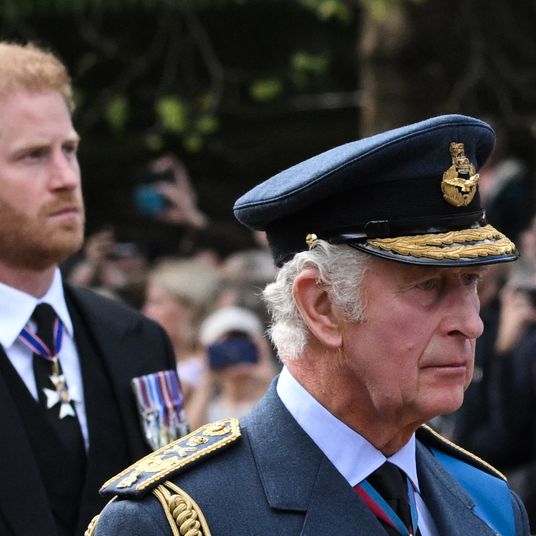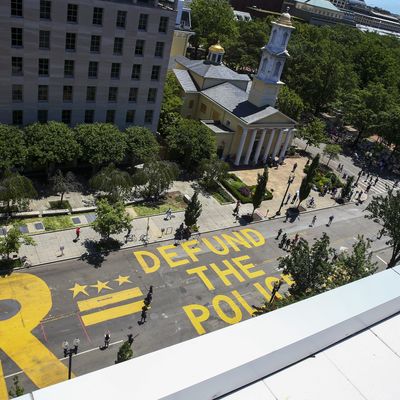
“Defund the police” has suddenly become a commonplace chant and slogan in cities across America. But what would putting the phrase into action actually look like? Intelligencer editors Benjamin Hart and Ezekiel Kweku and writer Ed Kilgore discuss.
Ben: “Defund the police” is on protesters’ lips in cities across the country. It’s a phrase that carries different meanings depending on who you talk to, from abolishing the police department to overhauling municipal budgets. On Monday, Joe Biden unsurprisingly came out and said he was against the overarching idea. But on Sunday, Minneapolis’s City Council said it intends to dismantle the city’s police force (details are nebulous at the moment), and Bill de Blasio said for the first time that he’d cut funding to the NYPD. Much more transformation in many more places seems inevitable. What do you think “defund the police” might end up translating to in terms of on-the-ground change?
Ed: You left out “And is there a life after death?”
Ben: Well, is there?
Ed: Of course, though I don’t think it’s like a Disney Resort in the sky. But we can chat about that some other time.
Ezekiel: Haha.
Ed: I think “defund the police” will produce a backlash in some places, a superficial “reevaluation” effort in others, and maybe real top-to-bottom change in a few. One problem, as you note, is that it means different things to different people. It’s not going to lead to big reductions in police budgets, I don’t think.
Ezekiel: Part of what’s going on is the struggle to claim the support of the protests for whatever particular policy recipe an activist favors. It’s a little like creating a marketing buzzword and then trying to figure out what the product is — this is not to be glib or to imply some sort of top-down process. You saw the same kind of process happen with “abolish ICE,” where the phrase meant anything from “open borders” to “let ICE’s functions revert to the departments that once used to be in charge of them.” There’s a similar thing that went on too with Medicare for All, with a bunch of different legislators claiming to have some version of it.
Ed: You could say the same thing about “build the wall,” actually.
Ezekiel: Yeah, that’s true.
What will end up happening is very unclear. I think that, as Ed notes, there’s going to be a range of solutions. Unlike Medicare for All and “abolish ICE,” these are policies that are determined at the local level, so there doesn’t actually have to be a consensus decision on what it means.
Ed: The competing buzzword is “police reform,” which is obviously less controversial-sounding.
Ezekiel: The mayor of Los Angeles is proposing a $150 million cut to the LAPD’s budget, which I believe comes out to about a 10 percent cut.
Ed: Not being snarky here: This could have something to do with a pandemic that’s screwed up L.A.’s overall budget.
Ezekiel: Several years ago, Camden “abolished” its police force, which in practical terms led to a reduction in the budget but also more police officers. Police budgets are generally sacrosanct, though. The money tends to come from elsewhere when local governments tighten their belts.
Ed: Well, the sales pitch for “community policing” has always been that you can get more effective policing — and less conflict with citizens — with less money if cops are recruited, trained, and deployed correctly. Today, the Biden campaign drew attention to his preexisting crime policy paper that calls for fully funding the famous “100,000 cops” program, which is one part of the 1994 crime bill Biden has not repudiated. It was supposed to produce “community policing” improvements, but the record is spotty.
Ezekiel: Right. I think that’s one major difference between “defund the police” and “police reform” — and probably why many of the people arguing for the former would reject Camden as an example of what they want to do. “Defund the police” is philosophically saying that there should be fewer police, and they should be doing less — not simply changing the focus of their efforts.
Ed: It sounds politically dangerous, though some people talking about “fewer cops doing less” stress we use cops to deal with social problems they are ill-equipped to address.
Ezekiel: So some flavors of “defund the police” emphasize simply cutting the budget. Others, like what Minneapolis seems to be about to do, are about taking responsibilities the police were formerly responsible for and shifting them to other departments. To my mind, the biggest practical obstacle here is the number of guns in the U.S.
Ed: And the fact that one of our two major parties thinks there aren’t enough of them.
Ben: There are those who say that the slogan is, politically speaking, just a starting point — that most people don’t expect cities to abolish or completely defund their police departments but that this is a way to shift the conversation. If the goal for a large part of the protest movement is major structural reform of one kind or another, do you think it’s politically savvy to go big like this?
Ed: It’s a good question, Ben. The competing slogan, “police reform,” is vague enough to encompass some pretty superficial approaches, including the Republicans’ default position that “a few bad apples” are the only police misbehaving.
Ezekiel: It’s hard to say. I think there’s a case to be made that it shifts the Overton window. A few years ago, the policy prescriptions on the table were stuff like body cameras and implicit bias training. Even the milder flavors of police abolition or defunding the police are more structural than that.
Ed: A related question is whether changes in policing might be sold as part of broader criminal-justice reforms that already have some bipartisan support. So far, they really haven’t been bundled that way. I mean, hell, even our law-and-order president claims to support criminal-justice reform.
Ben: In a very small-scale way.
Ed: Don’t get me started.
Ezekiel: I think people find prison reform and criminal-justice reform to be an easier pill to swallow than police reform.
Ed: Why do you suppose that is?
Ezekiel: Lots of people like cops — it’s a less abstract thing. Or, anyway, that’s my feeling on it.
Ben: And the political incentives are skewed for the different parties. Law enforcement goes heavily Republican.
Ed: It’s all tricky. My sense is that criminal-justice reform gained some bipartisan support out of Republican sympathy for white-collar-crime offenders.
Ezekiel: And even very sympathetic blue-collar criminals.
Ed: That’s certainly what seems to have motivated Jared Kushner, who all but dragged Trump across the line on the First Step Act — his own father’s case. Not sure there is some policing equivalent of that dynamic, unless it’s the sight of all those white kids dominating some of the George Floyd protests and getting gassed along with the black kids.
I did some research this morning on the origins of the term “police riot,” and it was used to describe the Chicago cops brutalizing antiwar demonstrators in 1968. Dude who came up with that term for what happened got himself elected governor of Illinois four years later. So even during the “crime wave,” public support for the po-po wasn’t uniform.
Ben: Let’s say Biden wins and the Democrats take the Senate. Would you expect large-scale federal legislation on this issue — of the type being proposed by the House now — to actually pass?
Ed: I’m sure it would be filibustered in the Senate, which means it would take 60 votes to pass. That could be tough. Particularly if Biden continues to oppose filibuster reform.
Ezekiel: I can’t say what the world will be like in two days, much less several months.
Ed: Aw, c’mon, Ezekiel.
Ezekiel: I just mean it’s a particularly volatile time. I think they have a chance at getting something passed. I don’t know if they’ll be able to get rid of stuff like no-knock warrants.
Ed: Well, I agree. I won’t make a prediction as to whether Mitt Romney’s wokeness will develop enough to vote for something like this.





